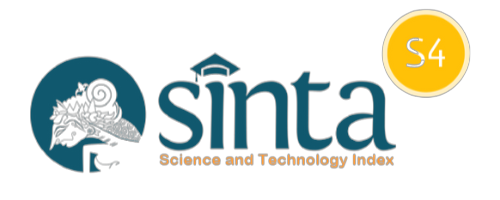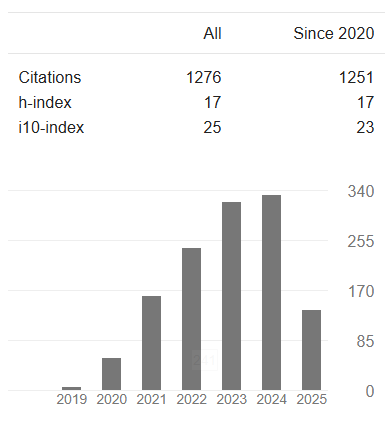Audit Quality Reduction Behavior: A Literature Review
DOI:
https://doi.org/10.14421/EkBis.2023.7.1.1764Keywords:
Time pressure, Work-Family Conflict, Job Stress, Audit Fees, Audit ExperienceAbstract
Audit quality has become an important issue for accounting professionals. The phenomenon of audit quality criticism from stakeholders such as users of financial statements and the government who shows dissatisfaction with financial statements will pressure auditors to improve audit quality. Auditors do not always apply audit procedures in the audit program. Audit quality behavior is defined as the auditor's actions during the audit process by reducing the effectiveness of existing audit evidence. This study aims to discuss the behavior of audit quality reduction a review of the existing literature related to that issues and then identify empirical evidence from previous research. Data collection techniques through search in national and international journals and selected based on related keywords, audit quality reduction. Based on the results of previous research, it is known that time pressure, work-family conflict, high work stress levels, audit fees, and experience can affect the behavior of decreasing audit quality. In contrast, work-family conflict and experience have no significant effect. The implications of the results of this study are expected to provide an in-depth understanding of the factors that affect the reduction of audit quality so that it can be used as evaluation material to improve audit quality.
Downloads
References
Albitar, K., Gerged, A. M., Kikhia, H., & Hussainey, K. (2021). Auditing in times of social distancing: the effect of COVID-19 on auditing quality. International Journal of Accounting & Information Management, 29(1), 169–178. https://doi.org/10.1108/IJAIM-08-2020-0128
Alzeban, A. (2020). The impact of audit committee, CEO, and external auditor quality on the quality of financial reporting. Corporate Governance: The International Journal of Business in SocietyPurpose This Paper Aims to Explore the Influence of Corporate Governance (CG) Components on the Quality of Financial Reporting (QFR). The Components Investigated Are the Audit Committee, 20(2), 263–279. https://doi.org/10.1108/CG-07-2019-0204
Amiruddin, A. (2019). Mediating effect of work stress on the influence of time pressure, work–family conflict and role ambiguity on audit quality reduction behavior. International Journal of Law and Management, 61(2), 434–454. https://doi.org/10.1108/IJLMA-09-2017-0223
Amiruddin, Pagalung, G., Kartini, & Arifuddin. (2016). The Effects Of Time Pressure, Work-Family ConflAmiruddin, Pagalung, G., Kartini, & Arifuddin. (2016). The Effects Of Time Pressure, Work-Family Conflict And Role Ambiguity On Work Stress And Its Effect On Audit Quality Reduction Behavior. International Jo. International Journal of Law and Management, Emerald Publishing Limited, 10(12), 1–23.
Brown, V. L., Gissel, J. L., & Gordon Neely, D. (2016). Audit quality indicators: perceptions of junior-level auditors. In Managerial Auditing Journal (Vol. 31, Issues 8–9). https://doi.org/10.1108/MAJ-01-2016-1300
Budisantoso, T., & Kurniawan, H. (2022). The contagion effect of decreasing audit’s quality on financial statement audit engagement: the Indonesian case. Asia-Pacific Journal of Business Administration, ahead-of-p(ahead-of-print). https://doi.org/10.1108/APJBA-11-2020-0393
Cowan, P. J. (2002). The role of clinical audit in risk reduction. British Journal of Clinical Governance, 7(3), 220–223. https://doi.org/10.1108/14664100210438388
Gaaya, S., Lakhal, N., & Lakhal, F. (2019). Does family ownership reduce corporate tax avoidance? The moderating effect of audit quality. Managerial Auditing Journal, 32(7), 731–744. https://doi.org/10.1108/MAJ-02-2017-1530
Handa, P., Pagani, J., & Bedford, D. (2019). Audits – What to Audit and Why. Knowledge Assets and Knowledge Audits, 3–16. https://doi.org/10.1108/978-1-78973-771-420191001
Herusetya, A. (2012). Dapatkah Kualitas Audit Mengurangi. Jurnal Akuntansi & Auditing Indonesia, 16(1), 48–61.
Jaffe, J. W. P. (1987). Design Audits. Managerial Auditing Journal, 2(2), 12–15. https://doi.org/10.1108/eb017590
Khan, A., Mihret, D. G., & Muttakin, M. B. (2016). Corporate political connections, agency costs and audit quality. International Journal of Accounting & Information Management, 24(4), 357–374. https://doi.org/10.1108/IJAIM-05-2016-0061
Kusumastuti, R. (2017). Perilaku Reduksi Kualitas Audit: Literatur Review. Proceedings, 20. http://www.ejurnal.stiedharmaputra-smg.ac.id/index.php/PRO/article/view/265%0Ahttp://www.ejurnal.stiedharmaputra-smg.ac.id/index.php/PRO/article/download/265/284
Madah Marzuki, M., & Muhammad Al-Amin, M. S. (2021). The effect of audit fees, audit quality and board ownership on tax aggressiveness: evidence from Thailand. Asian Review of Accounting, 29(5), 617–636. https://doi.org/10.1108/ARA-11-2020-0179
Mardessi, S. (2022). Audit committee and financial reporting quality: the moderating effect of audit quality. Journal of Financial Crime, 29(1), 368–388. https://doi.org/10.1108/JFC-01-2021-0010
Paino, H., Ismail, Z., & Smith, M. (2010). Dysfunctional audit behaviour: An exploratory study in Malaysia. Asian Review of Accounting, 18(2), 162–173. https://doi.org/10.1108/13217341011059417
Pamudji, S. (2009). Pengaruh Kualitas Audit dan Auditor Baru serta Pengalaman Bagian Akuntansi terhadap Kepuasan dan Loyalitas Klien. Jaai, 13(100), 149–165.
Rajendran, M., & Devadasan, S. R. (2005). Quality audits: their status, prowess and future focus. Managerial Auditing Journal, 20(4), 364–382. https://doi.org/10.1108/02686900510592052
Salehi, M., Jafarzadeh, A., & Nourbakhshhosseiny, Z. (2017). The effect of audit fees pressure on audit quality during the sanctions in Iran. International Journal of Law and Management, 59(1), 66–81. https://doi.org/10.1108/IJLMA-10-2015-0054
Sarunggalo, M. K. S., & Siregar, S. V. (2012). Hubungan Kualitas Audit Dengan Peluang. Jurnal Akuntansi & Auditing Indonesia, 16 N, 33–47.
Siddiqui, J., Nasreen, T., & Choudhury‐Lema, A. (2009). The audit expectations gap and the role of audit education: the case of an emerging economy. Managerial Auditing Journal, 24(6), 564–583. https://doi.org/10.1108/02686900910966530
Svanberg, J., & Öhman, P. (2013). Auditors’ time pressure: does ethical culture support audit quality? Managerial Auditing Journal, 28(7), 572–591. https://doi.org/10.1108/MAJ-10-2012-0761
Utami, H. T., & Diyanty, V. (2015). Pengaruh entrenchment effect terhadap kualitas audit dan peran efektivitas komite audit. Jurnal Akuntansi & Auditing Indonesia, 19(2), 137–152. https://doi.org/10.20885/jaai.vol19.iss2.art5
Wharton, C. L. (2000). Auditing: A slapped wrist or a helping hand? Measuring Business Excellence, 4(3), 103–107. https://doi.org/10.1108/mbe.2000.26704caa.005
Yuen, D. C. Y., Law, P. K. F., Lu, C., & Guan, J. Q. (2013). Dysfunctional auditing behaviour: Empirical evidence on auditors’ behaviour in Macau. International Journal of Accounting and Information Management, 21(3), 209–226. https://doi.org/10.1108/IJAIM-12-2012-0075
Downloads
Published
Issue
Section
License
Copyright (c) 2023 Nafachatus Shachariyah, Sulis Rochayatun

This work is licensed under a Creative Commons Attribution-ShareAlike 4.0 International License.





























 This work is licensed under a
This work is licensed under a 